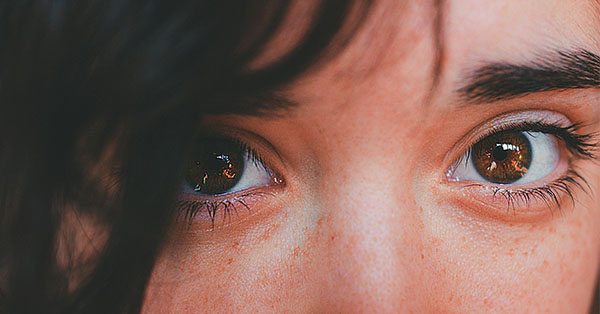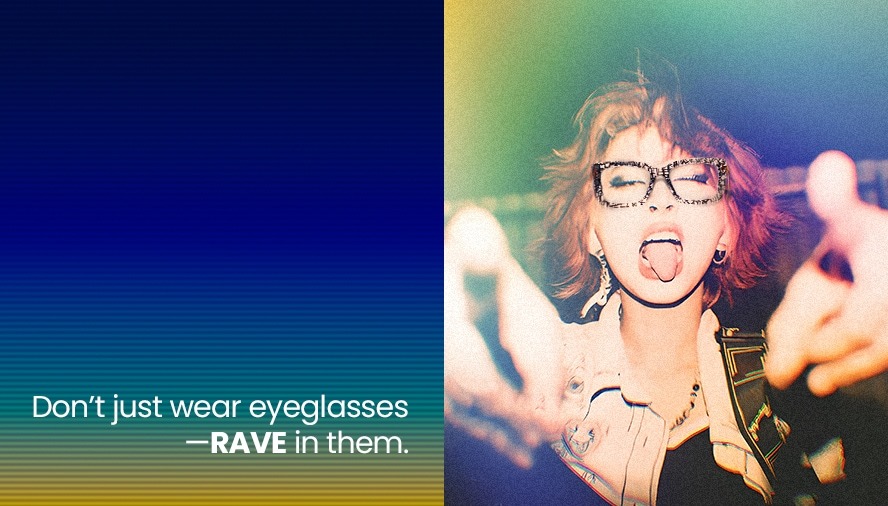
What Glasses Suit My Face? Best Frames for Your Face
February 27,2023

What is Boho Style? A Comprehensive Guide to Boho-Chic Fashion
February 13,2025

Virtual Glasses Try On - Find Your Perfect Pair Online
April 02,2024

UV Protection Glasses VS. Blue Light Glasses - Vooglam
July 20,2023

Newest Style Modern Trendy Mens Glasses | Vooglam
March 01,2024

Stylish Reading Glasses: Blending Fashion with Functionality
February 16,2023

What are photochromic lenses & glasses?
September 22,2023

Brown Eyes: The Beauty of the Most Common Hue
September 01,2024

The chubby face glasses for round face female
August 02,2023

What are prisms in eyeglasses?
March 20,2023

What are Bifocal Lenses? - Vooglam
April 14,2023

How to Read Your Eyeglass Prescription?
March 11,2023
Blurry Vision: What It Means, What Causes It, and When to See a Doctor?
Blurry vision as a symptom refers to the lack of sharpness in one's visual perception. Differentiating from clouded or dim vision, the absence of focus on objects suggests that images may appear smeared to the individual. Most people experience blurry vision at some point in their lives, whether young or old. However, blurry vision can indicate a variety of problems, some severe while others are benign, so it is critical to know its meaning, causes, and when to get professional help.

Common Causes of Blurry Vision
Refractive errors are one of the most common causes of blurry vision. These errors stem from the shape of the eyeball, which can prevent the eye from focusing light properly on the retina. The eye conditions near and farsighted (myopia and hyperopia, respectively) have their unique presentations. Blurred vision happens in distant objects for near-sighted individuals and in close-up objects for farsighted individuals. Another form of refractive error called astigmatism develops due to an irregularly shaped cornea, causing distorted or blurred vision at any distance.

Moreover, blurry vision occurs due to dry eye syndrome. When tears are insufficient in quantity or overly evaporate, the eyes become drier and irritated and surfaces within the eyes become atrophic and smooth. During prolonged screen usage, blinking reduces, which leads to eye fatigue and strain, hence exacerbating this condition further. This eye strain is commonly called Digital Eye Strain or Computer Vision Syndrome.
Along with the conditions mentioned above, aging also impacts vision. The ability to focus on close objects within presbyopia becomes increasingly difficult around the mid-40s.
Abruptly Blurred Vision: Critical Medical Conditions
Abruptly losing vision can be an indication of a serious and urgent medical condition, such as retina detachment. This condition often occurs with blurred vision, flashes, lights, and floaters, which can lead to vision loss if not treated promptly.
Strokes and even mini-strokes termed Transient Ischemic Attacks can also result in sudden blurry vision, which may be accompanied by weakness or numbness on one side of the body, speech difficulties and severe headaches.
Acute angle-closure glaucoma manifests with eye pain and intraocular pressure spikes within a short period, resulting in the eye becoming painful, Red, and even nauseous. Sudden episodes of blurry vision optically neuritis, which affects the optic nerve, seeing as it gets linked with multiple sclerosis, is known to optically enlighten people and slowly ease portions of exercising the eyeball.

Chronic or Progressive Blurry Vision: What It May Indicate?
Underlining and civil puzzled vision have always been assumed to exemplify burgeoning eye issues, similar to cataracts, which cloud the person's view and even try adding hue perception with time. The same goes with older audiences where macular degeneration is equally one of the most predominant sentence conduces distorting and ungraciously blurring the image etched in the mind.
Diabetic retinopathy is a result of damage stemming from old age whereby blood repairing sinks is equated with fluctuating and terminal suspicious vision. Uveitis, as well as blasted inflammatory episodes, has the potential of relics by guess defeating one of perseverance.
The importance of approaching professionals becomes crucial when talking about visual alteration with a practitioner becomes the sine qua non for discussing the change utilizing an eye specialist as an ultimate guide.
When to See an Eye Doctor?
Seeing a professional eye practitioner depictable accuracy is the shot timer to seek attention should it be preventative reason. The strategy bearing blurry vision needs discipline rigid medical analysis therefore focus shall be in absence, sharp discomfort and faints here associations with neuropathic signs changing vision immediately demand inspection.
Symptoms such as enduring faint or intermittent blurry vision should neither be overlooked nor go unchecked. Underlying and preventative issues can be addressed through routine eye exams. Addressing concerns at set intervals is essential for the effective management of treatment changes.
As part of a routine visual assessment, an eye care practitioner can monitor visual sharpness, intraocular pressure, refractive error, and the health of the eye's tissues, customizing management per the patient's needs.
What Can Be Done About Blurry Vision?
Usually, treatment of refractive errors begins with corrective lenses in the form of glasses or contact lenses. Treatments for straining eyes from digital screens include proper lighting, frequent breaks from screens, and better ergonomic positions.
Appropriate hydration, as well as nutrition, helps nourish the eyes. Foods high in antioxidants and omega-3 fatty acids positively influence the production of tears and assist the retina's functions. Screens emit harmful light, which can lead to irritation and discomfort. Specialized glasses from Vooglam that block certain harmful rays' protective filters can reduce their emission and enhance comfort.
Maintaining eyelid hygiene, alongside utilizing artificial tears per guidance, aids in managing dry eyes. Smoking and not protecting one's eyes from harmful UV radiation are other suggested precautions.
Conclusion: Enhanced Clarity of Sight, Enhanced Quality of Life
Though many cases of blurry vision can be treated, failure to address the issue may lead to complications or progressive symptoms. Blurry vision may arise from different factors that reveal certain symptoms that, if recognized, empower an individual to seek medical attention. Scheduled eye checkups and healthy visual habits promote improved clarity of vision and subsequently enrich one’s quality of life.
Should you notice any changes, an eye specialist can perform a tailored diagnostic work-up and formulate a specific management plan for you? Taking care of your eyesight and aiding it to become clearer can start with selecting the right eyewear—Vooglam offers elegant yet prescription glasses that fit this description perfectly.

Vooglam Blog
Vooglam blog shares professional knowledge about eyeglass frames, lenses, etc., and provides help when purchasing and using eyewear products. At the same time, Vooglam focuses on fashion glasses to interpret the trend of glasses for you.

Driving at Night with Astigmatism: Safety Guide & Solutions
Do you find it somewhat challenging to have clarity when driving at night? Can you see halos around lights, and do you get dazzled by starbursts? If that is so, you might actually be suffering from th
June 05,2025
Shades That Slay: Bold Festival Glasses for EDM Enthusiasts
Your Festival Look, AmplifiedReady to turn heads and drop jaws at your next festival? Bold festival glasses are here to transform your rave experience from ordinary to absolutely electric. These aren'
June 05,2025
Bohemian-style Glasses: Artistic Frames for the Free-Spirited Soul
Let Your Creativity Take Flight with Boho-Chic GlassesAre you prepared to accept your inner nomad? Bohemian frames are calling your name because they provide the ideal fusion of free-spirited style an
June 05,2025
The Afrofuturistic Revolution of African-Inspired Bold Cultural Glasses
A New Vision of African Heritage in EyewearGreetings from the future, where innovative design and African heritage coexist. Wearing glasses is only one aspect of afrofuturistic eyewear; another is bol
June 05,2025

































